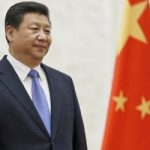The Drama WhatsApp Users Face In China


Osun Defender has learnt that WhatsApp has been suffering serious disruption in China. According to the Open Observatory of Network Interference (OONI), network measurement data suggests that Chinese internet service providers started blocking access to WhatsApp on Saturday. Public reports on Twitter indicate that WhatsApp, which is owned by Facebook, became inaccessible for some people a week ago.
The most recent move to censor the encrypted messenger comes ahead of next month’s 19th National Congress of the ruling Communist Party. At the sensitive gathering, which takes place once every five years, the government will select leaders and determine policy priorities.
Usually, China regularly tightens its internet restrictions in the lead-up to major Communist Party meetings.
“Typically, in the run up to Party Congresses, we’ve seen blocking, filtering, restrictions on the internet, and that’s what we’ve been seeing in the last couple months,” said Adam Segal, director of the Digital and Cyberspace Policy Program at the Council on Foreign Relations.
The Chinese government runs a huge apparatus of internet filters known as the Great Firewall, which it uses to censor content that it deems harmful.
However, the latest move against WhatsApp is also part of a wider trend of tightening controls and restrictions under President Xi Jinping, Segal said. China has reinstated WhatsApp access after past disruptions.
WhatsApp users on international SIM cards and data plans have not experienced the same problems. The restrictions appear to specifically target China-based users.
China’s internet regulator did not respond to a request for comment.
WhatsApp’s difficulties cast a shadow over Facebook CEO Mark Zuckerberg’s longtime efforts to make Facebook services available in China.
Big U.S. companies have been shut out of China’s market for years, including Facebook, Instagram, Twitter and Google. Some people access these services through virtual private networks, or with tools that disguise internet traffic to circumvent censorship. But the Chinese government has been cracking down on VPNs this year.
According to Timothy Heath, senior international defense research analyst at the RAND Corporation, the Chinese government does not like that WhatsApp uses strong encryption.
“The government wants to monitor internet communications, and therefore it’s trying to steer its people to use technology that can be accessed and monitored by the government,” Heath told CNN Tech.
Earlier this month, WeChat, a popular chat service with hundreds of millions of users in China, notified customers of its policies to comply with government requests for information.









